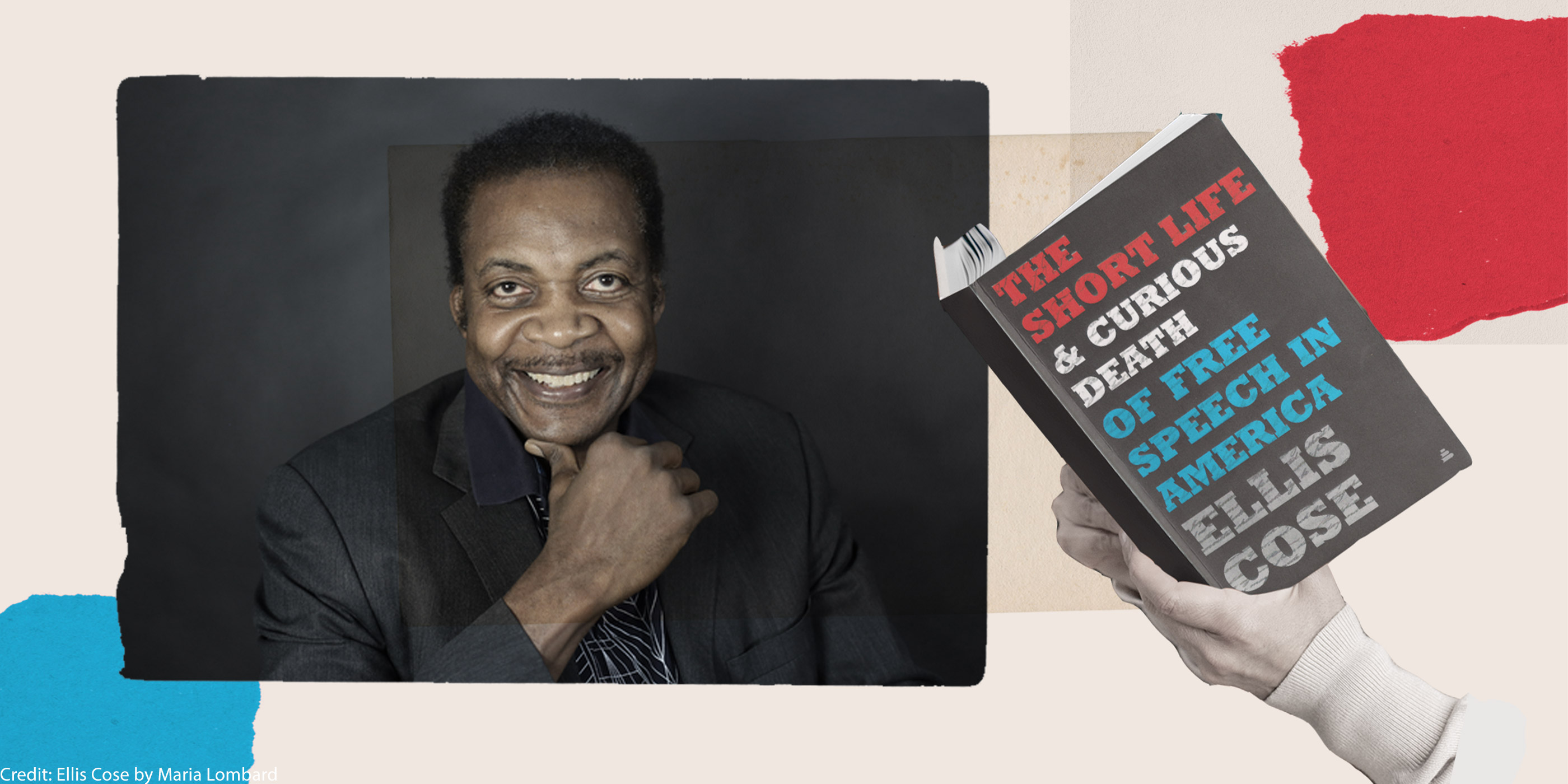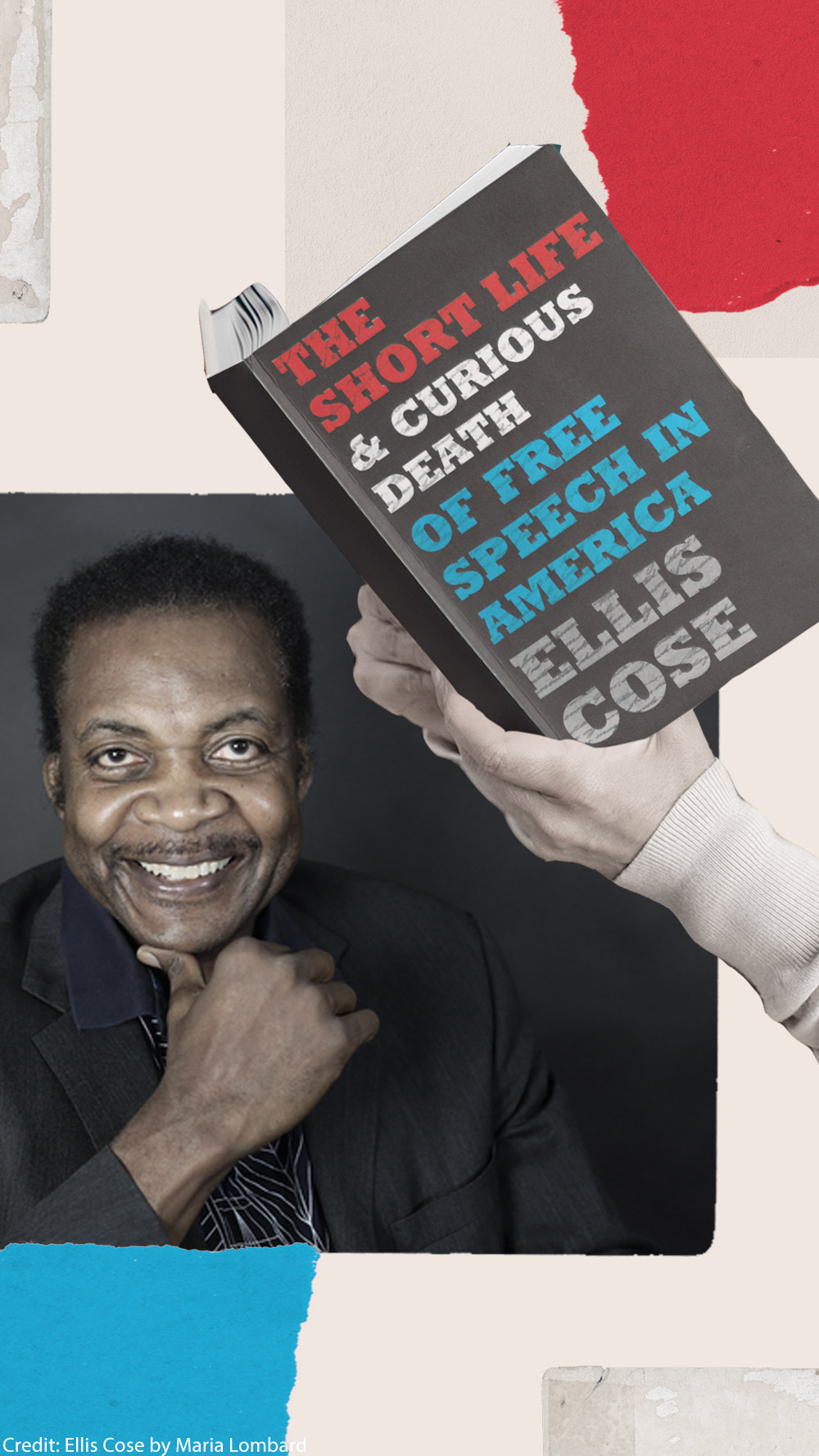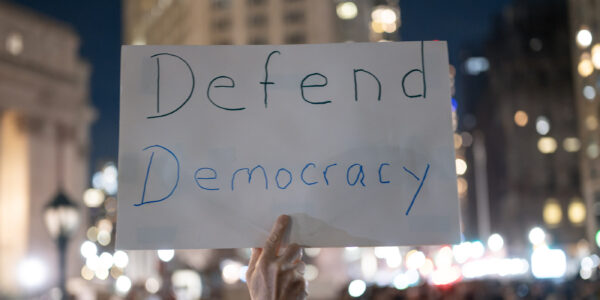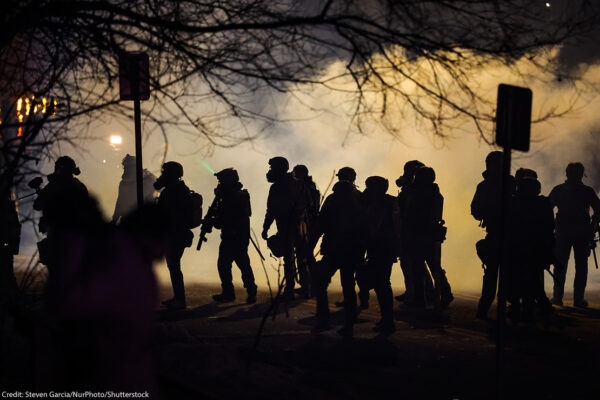The Short Life and Curious Death of Free Speech in America


No one expected their words to be enlightening or their tone harmonious. Hatred rarely comes in such flavors. It spills out as an ugly, incoherent mess infused with the rotten odor of willful ignorance. And so it was with the Nazi wannabes — self-styled white supremacists determined to make their mark on the world, committed to convincing anyone who might listen that their superiority was both evident and inevitable.
The setting was downtown Charlottesville, Virginia, August 2017. Their mission was unity — of like-minded hate mongers. Their leader, Jason Kessler, was a 33-year-old who lived with his parents and had once supported Barack Obama. He had learned that many demographers thought whites would eventually become a minority race in the United States. That news was so unsettling that Kessler remade himself into a white-rights activist. He styled himself as “a civil and human rights advocate, focused on the Caucasian demographic” in the mode of “Jesus Christ or Mahatma Gandhi.” His “Unite the Right” rally, observed the Christian Science Monitor, “was supposed to be the movement’s coming out party, an emergence from the shadows of internet chat rooms into the national spotlight.”
Kessler was inspired in part by fellow University of Virginia graduate and white supremacist Richard Spencer who, in May 2017, led a band of racists in Charlottesville chanting “Russia is our friend” and “Blood and soil,” a Nazi-inspired slogan. Why they were enamored of Russia is anyone’s guess; I presume it had something to do with President Trump. The reason for the Nazi chant was evident; they thought it allowed them to channel the spirit of General Robert E. Lee, who had abandoned the U.S. Army in a doomed quest to preserve race-based slavery in the South. Charlottesville’s leaders recently had voted to remove Lee’s statue from the downtown park that no longer carried his name. Spencer and his crew opposed that effort and everything they thought it implied, including hostility to the legacy of whiteness.
The Loyal White Knights of the Ku Klux Klan were similarly motivated by the perceived threat to American whiteness. Its members — 50 strong — converged on Charlottesville that July to march around and shout “white power” as hundreds of counter protesters responded with “racists go home.”
How did the mad ravings of a bunch of intellectually confused, racially paranoid misfits end up spurring a national debate over the limits of free speech, the meaning of the First Amendment, and the moral obligation of the president of the United States? One reason is that — despite Kessler’s efforts to cast himself as the Martin Luther King Jr. of white rights — the rally engendered fears of made-for-TV-scale violence.
As news of the event spread, and some sense of its size became clear, several local businesses announced they would temporarily close out of concern for the safety of their customers and employees. The University of Virginia, located in Charlottesville, asked students to stay away.
Many rally participants showed up armed with rifles and other deadly weapons (thanks to Virginia’s open carry laws). Indeed, even before the rally’s scheduled noon start time, Kessler’s congregation had ignited so much hostility and ugliness that local authorities labeled the gathering an “illegal assembly” and ordered participants to leave.
In the end, the racist, anti-Semitic hate-fest caused three deaths. Two of the dead were state troopers. Berke Bates and H. Jay Cullen, assigned to monitor the gathering from the sky, died when their helicopter crashed. The third victim was Heather Heyer, a 32-year-old paralegal.
James Alex Fields Jr., a 20-year-old Adolf Hitler fanatic from Ohio, killed Heyer by intentionally plowing his car into a crowd of counter protesters — injuring some 19 people in addition to Heyer, who died from blunt-force injury to her chest.
Following the tragedy, Donald Trump famously condemned the “hatred, bigotry, and violence on many sides.” His words provoked a controversy that went on for months as Trump proved incapable of criticizing the racist mob without also condemning those who opposed it. Heyer’s mother, Susan Bro, was so sickened by the president’s words that she refused to take his condolence call.
“I’m sorry. After what he said about my child,” Bro told CNN, and added, incredulously, “I saw an actual clip of him at a press conference equating the [counter] protesters … with the KKK and the white supremacists.”
James Fields’ lawyers sought mitigation by stressing his history of mental illness. A psychologist testified that he had been diagnosed with bipolar disorder at the age of 6 and later with schizoid personality disorder. His lawyers also delved into his childhood traumas, which included coping with the murder of his grandmother by his grandfather, who had subsequently killed himself. “James’s mental illness causes him to lose emotional and behavioral control in stressful situations,” said his attorneys, who claimed he had taken himself off his meds when he was 18, meaning he was medically untethered when he murdered Heyer. After pleading guilty, Fields received two life sentences — one in state court and the other in federal court.
Even with Fields confined to prison, questions raised by Heyer’s murder — and the rally that caused it — reverberated. Trump’s troubling insistence on calling bullying bigots “very fine people” was perhaps inevitable given his need to placate a base that contains more than its share of people like David Duke, the former Ku Klux Klan grand wizard who promoted the rally as an effort to “take our country back” and who, after Heyer’s murder, thanked Trump via tweet for his “honesty & courage.” Duke also tweeted, “This is why WE LOVE TRUMP and WHY the FAKE NEWS MEDIA HATES TRUMP. He brings to light what the lying, Fake News Media Won’t. The truth is the media covers up horrific numbers of racist hate crimes against White people!”
But putting the president and his behavior aside for the moment, what about the free speech community — the civil libertarians who successfully fought in court for Kessler’s right to hold his rally in downtown Charlottesville? The city had wanted to move Kessler’s parade of bigotry to another park, one farther from the heart of town that officials claimed would be easier to police. But Kessler had said no; and the American Civil Liberties Union, along with a local outfit called the Rutherford Institute, had sued the city on Kessler’s behalf.
Following the event, the ACLU was heavily criticized — and also lauded — for standing up for the racist rabble-rousers. Glenn Greenwald, best known for reporting on U.S. surveillance programs brought to light by whistleblower Edward Snowden, forcefully defended the ACLU. Civil liberties advocates, he argued, “defend the rights of those with views we hate in order to strengthen our defense of the rights of those who are most marginalized and vulnerable in society.”
Others were not so sure. The Guardian reported on an erosion in “the belief that the KKK and other white supremacist organizations are operating within the bounds of acceptable political discourse — rather than as, say, terrorist organizations — and therefore have a moral right to be heard.”
Jessica Clarke, a law professor at Vanderbilt University Law School, pointed to studies showing that bigots routinely hid behind free speech arguments as a cover for racism. Highly prejudiced people, she noted, “were less likely to voice First Amendment objections when the threatened speech was race-neutral, suggesting their free speech concerns were more about the freedom to express racist prejudice than free speech in general.”
Legal scholar Laura Weinrib noted that the ACLU had never blindly supported free speech but had done so in the fight for a better society; and she wondered whether “a dogged commitment to free speech” was still the best strategy for an organization pursuing social justice: “The balances have shifted dramatically since the 1930s. In recent years, nearly half of First Amendment victories have gone to corporations and trade groups challenging government regulation. Free speech has served to secure the political influence of wealthy donors. Labor’s strength has plummeted, and the Supreme Court is poised to recognize a First Amendment right of public sector employees to refuse to contribute to union expenses. Long-settled principles of American democracy are newly vulnerable, and hate has found fertile terrain.”
Even Susan Herman, president of the ACLU, questioned whether old assumptions about free speech still applied: “We need to consider whether some of our timeworn maxims — the antidote to bad speech is more speech, the marketplace of ideas will result in the best arguments winning out — still ring true in an era when white supremacists have a friend in the White House.”
Leslie Mehta, the young black attorney who was legal director of the ACLU of Virginia when it took the Kessler case, seemed confident, when I interviewed her in the aftermath of Heyer’s death, that she had made the right decision.
“There were certainly lots of conversations between myself and the executive director. There were a lot of revisions back and forth with briefs and having discussions about potential implications, but nobody has a crystal ball and no one [knew] exactly what [would] ultimately happen. I do think that the First Amendment has to mean something. And at the time, it was my understanding … that there was no evidence that there would be violence.”
Mehta, a native of Woodland, North Carolina, is intimately familiar with the South and with the United States’ legacy of brutal racial oppression. She went to historically black Howard University School of Law because of its reputation for creating lawyers devoted to “social activism and social justice.” But she also is adamantly committed to the idea of free speech.
“I think one of the reasons why free speech is so important to me is because … it exposes what you disagree with. And for me, I think it’s important to hear things like our president saying … ‘Well, there are good people on both sides.’”
Mehta also thought it was important to consult with her mother and her 92-year-old grandmother as she proceeded with the Kessler case. Her grandmother, she confided, “never said that she fully agreed or disagreed [with Mehta taking the case], but she did not think that I was wrong.”
As anyone trying to understand the Charlottesville fiasco quickly discovers, the issue of speech — particularly in a society polluted by racism and largely defined by economic inequality — is endlessly complex. So let me begin this journey with a brief exploration of how the U.S. came to embrace such a broad notion of free speech, and let’s look at some decisions made in its name.
•••
We tend to think our current conception of free speech has been around essentially since the beginning of the republic. In truth, our firm and collective embrace of the First Amendment is a relatively recent phenomenon.
The Constitution was drafted at a time when the Founders had rejected foreign tyranny. They were wary of the potential power of a centralized state. So the Bill of Rights was a balancing act, weighing not only the rights of individuals versus government in general but also the rights of states versus the federal government.
Indeed, at the time the Bill of Rights was ratified, the First Amendment did not apply to the states. As legal scholar David Yassky has pointed out, the Constitution’s guarantee of free speech was “quite weak — at least to contemporary eyes. A citizen in 1800 had no absolute right to free speech; if the speech-restricting law was a state law, the Constitution was silent.”
Eventually that changed, and that had a lot to do with the Civil War, the end of slavery, the 14th Amendment, and assorted court decisions. But even after the Reconstruction era, free speech, as we understand it today, was nothing but an aspiration, which is one reason that Southern states could effectively outlaw agitation for abolition.
Free speech is very much an invention of the 20th century. And that concept of speech is very idealistic, inextricably linked to the notion that in the competition of ideas, good ideas generally crowd out bad.
That argument received its most famous articulation in a 1927 case: Whitney v. California. At its center was Charlotte Anita Whitney, a wealthy California blueblood convicted of joining the Communist Party. She argued that her prosecution violated the Constitution. The Supreme Court unanimously disagreed. But even in disagreeing with her position, Louis Brandeis (joined by Oliver Wendell Holmes Jr.) produced a brilliant and eloquent exegesis on the potential of free speech to enact social change:
“Those who won our independence believed that the final end of the State was to make men free to develop their faculties, and that, in its government, the deliberative forces should prevail over the arbitrary. They valued liberty both as an end, and as a means. They believed liberty to be the secret of happiness, and courage to be the secret of liberty. They believed that freedom to think as you will and to speak as you think are means indispensable to the discovery and spread of political truth; that, without free speech and assembly, discussion would be futile; that, with them, discussion affords ordinarily adequate protection against the dissemination of noxious doctrine.”
As Brandeis saw it, free speech was virtually a sacred right and an awesomely powerful force that would expose “falsehood and fallacies” and “avert … evil by the processes of education.” Hence, the remedy to bad speech was “more speech, not enforced silence.”
That piece of writing has been deemed one of the most important commentaries ever crafted on the First Amendment. But Brandeis assumed something that has not been borne out by facts, which is that the better argument would generally win. He also assumed that relevant people on all sides of a question were equally capable of being heard and that skeptics were interested in listening.
That fallacy continues to inform the thinking of those who see speech as inherently self-correcting.
Much as many of us admire Louis Brandeis’s mind and spirit, the society he envisioned has never existed. Instead, we have created a society in which lying is both endemic and purposeful. We have brought the worst values of advertising into the political sphere and wedded that to long-established tactics of political propaganda, even as our political class has learned to use social media to spread disinformation that propagates at a breathtaking rate. The very idea that political speech would expose and therefore vanquish “falsehood and fallacies” now seems incredibly naïve.
Free speech always had limits. But because of our new technological reality, because of the unexpected weaponization of speech, we are having to consider those limits in a new light. We live in a world where it is far from clear that the answer to bad speech is more speech; and where a foreign power, thanks to our freedom of expression, may well be responsible for the election of a U.S. president. We live in a time when a frightened white minority within the larger white majority fights to maintain control of our country; and when large corporations and cynical functionaries — eager to exploit fear — have a bigger megaphone (including their own television news networks) than anyone speaking for the powerless and dispossessed.
We live in an era when the U.S. awarded its presidency to a man who lost the election by roughly 3 million votes, and who, with the cooperation of a submissive Senate, has appointed judges determined to thwart the will of the public; has proposed policies, supported largely by lies, designed to further divide an already polarized nation; and caters to an irrational mob whose most fanatical elements want to refight the Civil War.
All of this raises a host of difficult questions: If the Brandeisian view of speech is fatally flawed, what is a better, or at least a more realistic, view? Is it possible to reverse these trends that are destroying our democracy? How do we balance an array of important societal values that compete with the value of free speech? How, in short, do we enable a relatively enlightened majority to rescue our country from an embittered, backward-looking minority? And what happens to speech — which has never been totally free — in the process?
Excerpt adapted from The Short Life and Curious Death of Free Speech in America by Ellis Cose. Published by Amistad. Copyright © 2020 HarperCollins.



